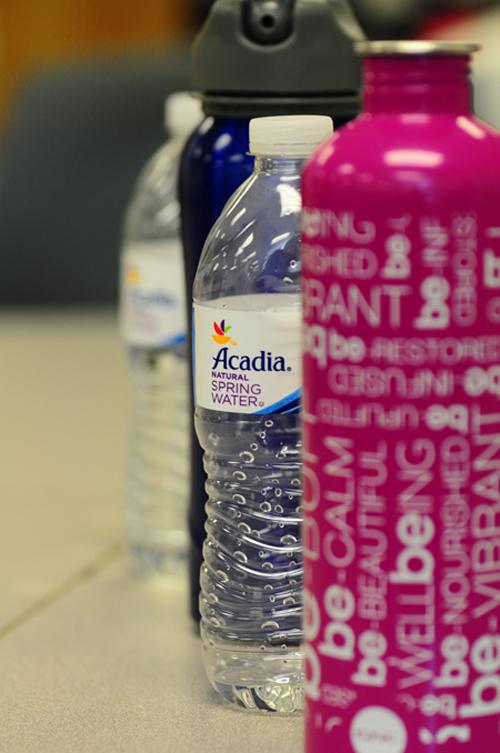
During the hot summer months, it may seem like second nature to carry a reusable water bottle around for refreshment on the spot. It seems like a smart decision, helping stay hydrated and cutting down on waste.
“The reusable bottles make you look cool, like you’re saving the world,” junior Jenny Ha said. In reality, the bottles could be good for the world, but not the body. They could be harmful rather than helpful.
After the huge movement to carry reusable bottles sprang up five years ago, they could be found everywhere; companies like Nalgene were making profits and even stores like Victoria’s Secret Pink started selling them. However, all of these bottles were made of polycarbonate plastic, containing a chemical called Bisphenol A, or BPA. In 2008, the National Toxicology program released a report that stated BPA was toxic to humans, possibly causing health issues like heart disease, diabetes, reproductive problems and cancer and having negative effects on fetuses, according to The Washington Post.
In a flash, the larger water bottle brands, such as Nalgene, stopped making the bottles they had mass produced and instead began manufacturing “BPA free” bottles, which were clearly labeled. General concern among the public simmered down.
“I use plastic bottles,” junior Jonathan Pratt said. “I do care that they could be poisonous, but it hasn’t affected me so far so I am going to continue using them.”
In light of the report concerning the plastic bottles, a movement to buy and use stainless steel and aluminum bottles arose. Companies such as Sigg began to sell bottles of various sizes that were labeled free of harmful chemicals, as well as being sturdier and of higher quality than their plastic counterparts. The important part was choosing high quality ones.
“I like plastic bottles best because the metal water bottles make the water taste metallic,” senior Bekah Zorn said.
The metal bottle she had tasted water from was most likely not one of the quality ones. So, what is the problem? Are all major brands of bottles are apparently “safe” now? According to the National Resources Defense Council, just because plastic bottles are now “BPA free” does not mean they are completely healthy. The new bottles that companies such as Nalgene and Camelbak produce are made of a plastic called Tritan. While Tritan is not identified as containing BPA, the ingredients are not actually specified at all. To make matters worse, the plastic falls into the same category of identification as polycarbonate, which has BPA in it. Also, when exposed to heat these bottles can leak harmful plastics into the liquid they are holding.
With all the scientific information cast aside, the bottom line is that reusable plastic bottles should be carefully used and bought. Even if a student buys a brand new Nalgene bottle that is labeled “BPA free” and believes that Tritan is not harmful, there are some things they cannot control. During sports practice, the plastic bottle is left sitting in the hot sun, and afterwards is put into the dishwasher. Both times, it is exposed to heat that could leak chemicals into the water.
Aluminum and stainless steel bottles, while not perfect, are a better solution. Despite the fact that a study was done that concluded some were still coated with a resin that contained BPA, in general they are safe. Brands that were confirmed as safe by a Consumer Reports investigation include: Sigg and Steel Works stainless steel bottles, and Sigg aluminum bottles.
Still think the water bottle drama is trivial? After all, what are the chances that anything could happen just from drinking out of a water bottle? Before students roll their eyes and forget about these details, remember that the possible problems that could occur are serious, such as cancer and heart disease, and that there is a solution. It is simple: choose aluminum and stainless steel bottles by companies like Sigg, buy “BPA free” bottles only; if plastic is necessary use brands like Nalgene, and keep bottles out of the heat.







b foster • Sep 9, 2011 at 8:36 pm
very informative!!